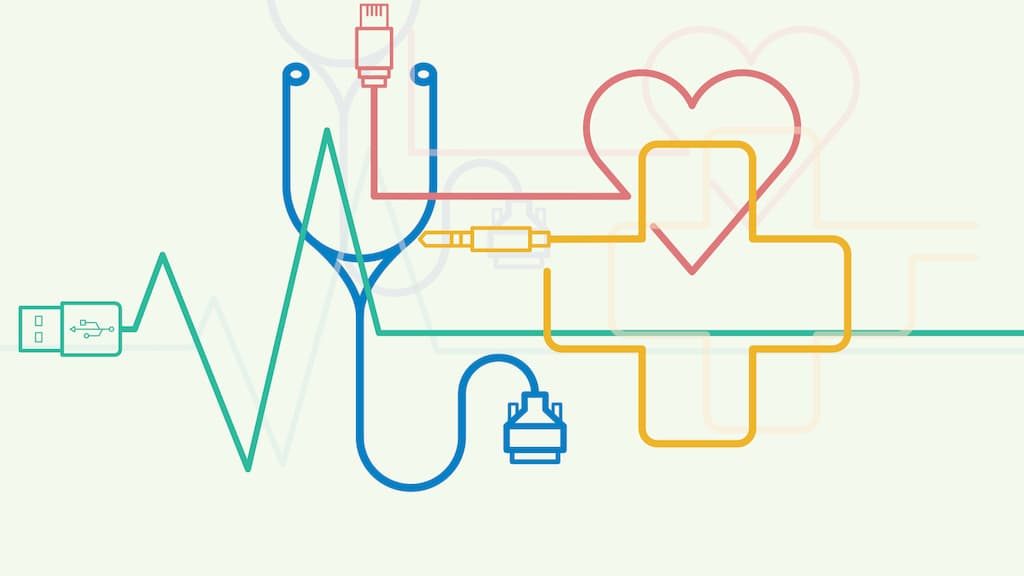Digital Health
At Emotive Brand, our work with purpose-led healthcare companies has expanded our vision of how digital health can change people’s relationship with how they manage their health. Today, most patients, across all generations, still depend on long-established ways of connecting with healthcare providers. According to Salesforce’s report, “2015 State of the Connected Patient”, 76% of people call to set up appointments, 62% rely on a doctor to keep track of personal health data, and 40% review the data with their physician in person. However, this is changing rapidly and the future of health looks different.
Infusing technology into healthcare management is revolutionizing the healthcare industry in new and valuable ways. From downloading the latest health-tracking app to taking out loans to get through medical school to going on social media to express their frustration with the state of healthcare as a whole, millennials are deeply engaged in their health management and their needs are center of change in the digital health industry. According to Salesforce’s report, around 70% of millennials want to increase the use of mobile devices, apps, wearables, 3D printing, telehealth, and other cutting edge devices to streamline and improve the way they interact and manage their health.
We’ve learned the phrase “digital health” means different things to different people, and this post focuses on what it means to millennials. As a millennial myself, I am interested in the impact of digital health on doctor-patient relationships. How do, or might, advances in digital health change the relationships we have with our doctors? And, as a result, where do millennials see the future of digital health heading?
I reached out to my peers and what rang true for them was this: Across the U.S., millennials believe that by putting more focus on the individual patient’s needs and feelings, digital healthcare technology can make healthcare more personalized, empathetic, streamlined, and meaningful.
The following are the additional top-line findings I gathered from the responses I received.
1.Millennials value digital health because it helps them better manage their health, making millennials feel more connected to their personal well-being.
Millennials consider digital health to be a system of platforms, devices, and technologies that have become integrated into the way we manage, digest, and interact with our health. Commonly cited examples of digital health include health tracking devices like FitBit, self-diagnosing websites like WebMD, doctor communication platforms likened to , and apps that make it easier to make appointments, order medication, store individual health data, and recommend preventative health measures. It means convenient communication with doctors, streamlined healthcare, personalized information and counsel, and individualized and private health tracking. These technologies help keep us connected with the information and the experts essential to managing our personal health.
2. Millennials have different and sometimes non-existent relationships with their doctors, but they believe digital health has the potential to change that.
Because millennials are switching cities, jobs, and budgets more than any other generation, going to the same doctor year after year is rare and oftentimes unsustainable. In fact, according to Salesforce’s report, millennials are the least likely of the generations to have a permanent physician, and are generally frustrated with filling out repetitive forms, the time wasted waiting in sterile doctor’s offices, and muddling through the murky waters of choosing a suitable health insurance plan. Oftentimes, being busy or not wanting to deal with the hassle of going to a doctor leaves millennials skipping check-ups, self-diagnosing illnesses, frequenting urgent care, or calling their family’s doctor to address their needs.
But digital health offers a potential solution. Millennials are interested in a world where they can text their doctor or Skype with their physical therapist. They wonder why making an appointment isn’t as easy as sending money over Venmo. They marvel at the possibility of swiping a card containing all their health data (like a credit card) at the doctor’s office. They search for apps to help them find the best doctors in the vicinity with reviews from their peers. Millennials ask, “What if, instead of spending that hour waiting to see the doctor, we went out for a run?” Overall, millennials crave connectivity without having to go through the hassle of trying to connect, and they believe advances in digital health can make such connections more reliable, accessible, and valuable.
3. Millennials believe that the digital health technologies that focus on personalization hold tremendous value.
Oftentimes, the frustration of health insurance and healthcare providers can leave millennials feeling out of control and discouraged with the system. Conversely, devices that encourage reaching goals and keeping on track make millennials feel like they play an active role in their health. Digital healthcare that gives this sense of control is of great value to millennials. Millennials want digital health to integrate seamlessly into their lives. They want technologies to feel like they were made for them.
As a result, digital health brands that focus on the consumer have a real opportunity to resonate within the millennial market. Millennials are downloading health-tracking apps at rapid rates and searching carefully for the best healthcare suited to their personal needs and lifestyles. In short, millennials care about health. They care about our health and want doctors, insurers, products, and technologies that feel like they care, too. Many also want to be doctors, others work for insurance companies, or aspire to create new technologies that encourage this level of empathy, attention, and care. Because there are so many layers in the healthcare consumer experience, there is a huge opportunity for digital health brands to make an impact by making sure every touchpoint feels focused on the consumer.
4. The future of healthcare hinges on digital technologies, coupled with an empathetic approach.
Millennials see digital health as a way of moving healthcare forward. The industry is full of opportunity and potential. And healthcare technology encourages collaboration amidst the often disparate parts of the healthcare industry. It puts a needed focus on preventative health, enabling individuals to be more proactive about their health. Many millennials believe that the future is a world where all health information will be digitally stored and safely accessible. Data will be in real-time, with constant collection, analysis, and recommendations.
However, some millennials worry that the shift to digital health could mean that personalized healthcare becomes even more dehumanized. This is why so many millennials believe that companies, hospitals, and insurers alike need to restore focus on the person. Empathy is the key here, and millennials believe that successful healthcare is empathetic healthcare. If digital health is used to create, encourage, and manage empathetic healthcare, we will move towards the future in the right way. Brands that innovate with empathy in mind will gain the respect and loyalty of millennials – moving healthcare forward by putting patient care front and center.
This is the sixth installment of “Meaningful Millennials,” our ongoing series where we interview millennials on a variety of subjects that are top of mind for us in the studio.
If you are interested in contributing to next month’s discussion and you are a millennial, please email me at [email protected].
Emotive Brand is a San Francisco branding agency.



